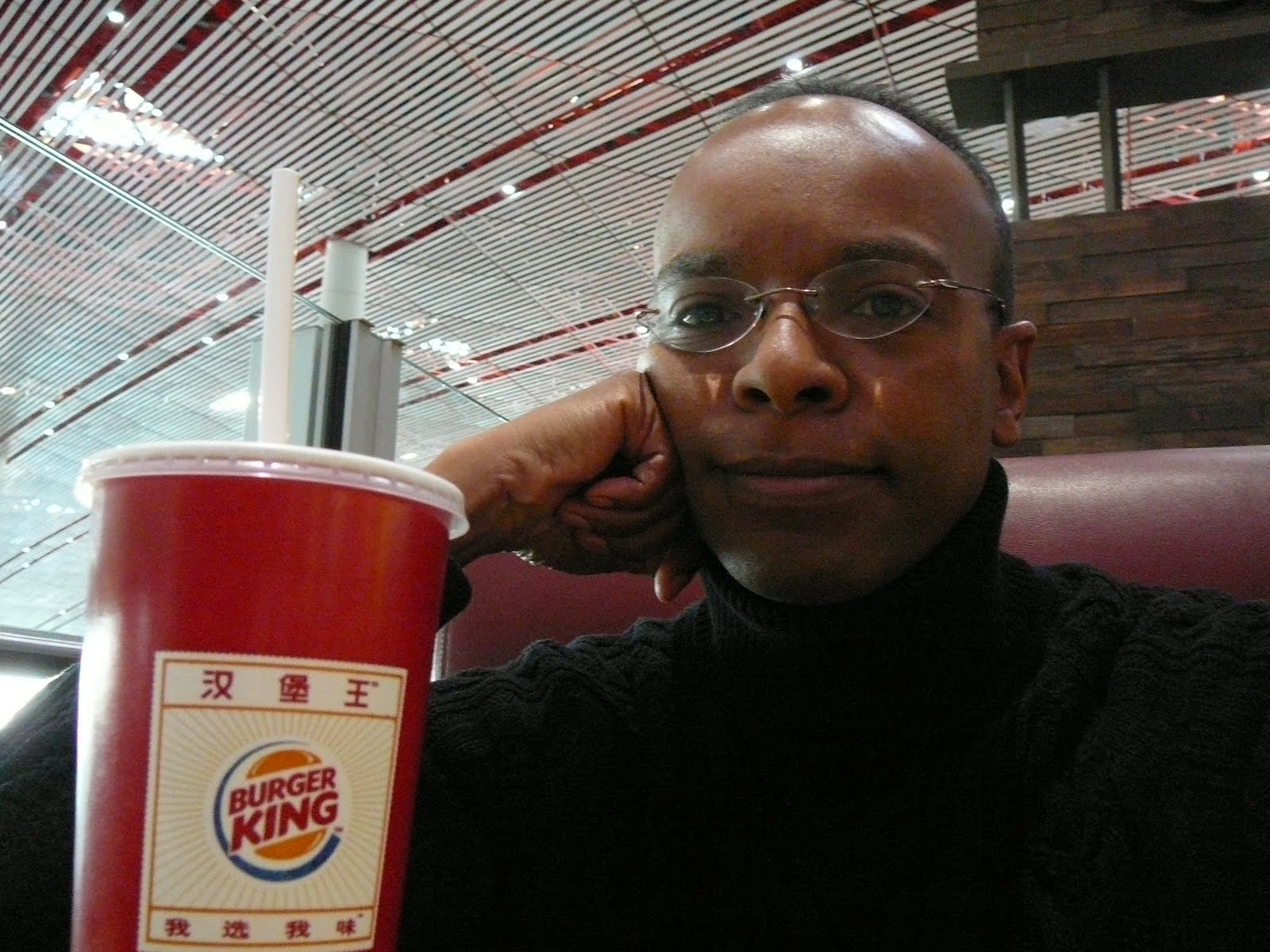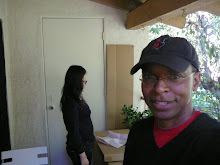
My wife runs her own English school on the Beijing west side, the part of the city where she grew up. She makes arrangements with low-income parents who otherwise would never be able to send their kids to an English-language school, and sets up after-class instruction at her old apartment. It is the classic case of giving-back to the community, a phrase that gets a lot of play in the U.S., but really means something in China's big cities.
I decided to visit the apartment one afternoon, and meet some of the children. They are around 8-to-10 years old, and I was clearly the first dark-skinned foreign person they'd ever seen in-person. A few of them just freaked out: "what part of China is HE from?!"
After dealing with a few attempts by the little hoodlums to lock me in the bathroom and turn off the lights (and turn on the heating lamps -- the switches are unaccounatbly on the outside of the door. I don't want to get into that), I told my wife I felt much safer and more comfortable back at my office a few blocks away. The walk back gave me some time to think again about being African-American in China.
A writer for the Atlanta Post website asked me some questions about this in an interview for a story about business in China. I said that Chinese don't look at me as African-American. To them, I'm just African. (Or, in the case of a 10-year-old troublemaker, I am a Chinese person from who-knows-where that's worked-outside-so-long-that-his-skin-got-really-dark-and-his-eyes-got-really-round.)
Prior to the 2008 Olympics, it seemed that the only things Beijing Chinese knew about black people was 1) they were from Africa, and 2) they sold illegal drugs. After all, that's what it said in the People's Daily.
Rumors circulated across Beijing that nightclub owners were shutting their doors to black customers as the Olympics drew closer. Police stopped me at my apartment compound and asked for my identification a half dozen times. I traveled to Hong Kong on a visa renewal run and heard the same stories, not just from citizens of Nigeria and Kenya, but also from Indians, Pakistanis and Brazilians. So really it wasn't being African that made you suspect in the eyes of the authorities, it was being non-Chinese, period.
In truth, China has its own race issues to solve, managing the demands of more than 50 ethnic minority groups, and it will be interesting to see how it all develops. Keeping foreigners comfortable is the least of this country's concerns. Besides, we're all considered wealthy, regardless of skin-color, otherwise we wouldn't be here. And so I guess that's what being African-American -- or African-anything -- in China is really all about.
I keep that in mind, especially when my wife and I try to catch a taxi together in Beijing. Most drivers won't stop. Others nearly crash their cabs because they can't stop staring. I now tell my wife to stand by herself, and when the driver stops and lets her in, I will run out from behind a telephone pole and slide into the back seat with her, cackling like Eddie Murphy in "Beverly Hills Cop."
When she asks me "what's so funny," I simply tell her I've seen this movie before.




